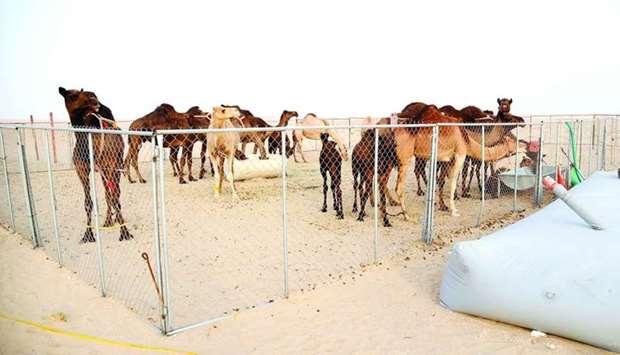Speaking to local Arabic daily Arrayah, the owners pointed out that they incurred heavy losses, including the death of several camels, due to the sudden and unprecedented measures taken by the Saudi authorities.

Hundreds of camels died of starvation and thirst after being driven out of Saudi Arabia, Gulf Times reported earlier this month, citing an article by the UK-based Daily Mail. Some animals perished when they got stuck at the border between the two countries where there was insufficient food and water.
Others were left to die by the roadside after their owners were given just one hour to leave their farms, the report said, noting that more than 9,000 camels were expelled in just 36 hours.
According to Arrayah, the owners suddenly found themselves without access to farms and herding grounds that they had used for years and spent millions on to equip them with generators, water tanks, tents, portable cabins, as well as trucks and 4x4 vehicles. The only thing that mitigated their losses was quick intervention by the Qatari government, which provided alternative, temporary farms for the owners and their returning camels.
Qatari livestock owners used the vast spaces of Saudi Arabia, measuring 830,000sq miles, to graze their animals.

The authorities in Qatar have provided facilities such as fodder and water for the returning camels.
Ali al-Marri, an owner, told Arrayah that a number of camels went missing after being expelled from their farms in Saudi while some herds got mixed up because of the large numbers. Camel owners the created a WhatsApp group to post the images of stray and unidentified camels until their owners could verify and claim them. Al-Marri added that he had to sell 30 camels at a fraction of the actual price for fear of losing them completely in Saudi Arabia.
Abdulrahman al-Azbah, another owner, said they started to feel secure only after the government provided the necessary services and facilities for the returning camels. Such services were offered for free and included the instant supply of water and fodder for the animals.
Many animals were reportedly saved after the Ministry of Municipality and Environment provided emergency shelter, according to reports. Within days of the initial order, some 15,000 camels and 10,000 sheep had passed safely back into Qatar.
Livestock owner Mohamed Bakhit stressed confidence that the authorities concerned would continue providing the necessary support to camel owners until they secured their full rights and compensation for the losses incurred.
Saeed Ali Abusharb said besides the material loss, camel owners in Qatar were upset and disappointed at the hostile and sudden change of behaviour in Saudi Arabia towards them and their animals.
Similarly, Salem Uwaida expressed concern and fear that his possessions in Saudi could be lost, stolen or confiscated, adding to his losses. He said Qataris used to invest there due as there was a lot of trust, but that is gone now.



